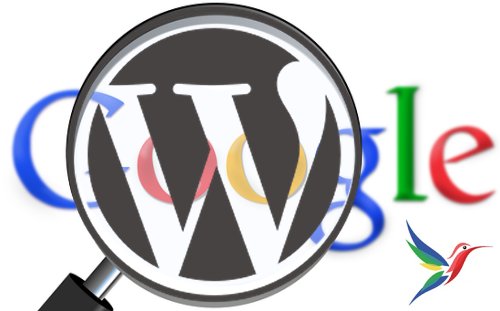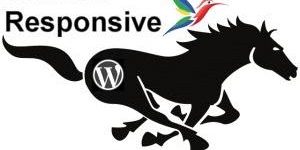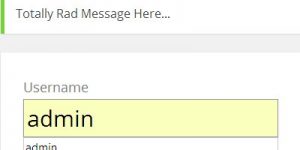Comment on WordPress SEO Tutorial by SEO Dave.

If you use a WordPress theme like the Stallion SEO Theme your tags, categories and other WordPress archives will use post excerpts. Have archives with post excerpts is not going to cause a duplicate content penalty. Millions of websites run WordPress and most will have categories with excerpts and many will have full posts.
If your WordPress theme has full posts on categories this is a bad idea, not for duplicate content issues (Google is smart enough to determine which is the main article), but pagespeed issues, loading 10 full posts on a webpage (category, tag etc…) is a bad SEO idea. Noindex won’t stop the wasted resources when Google spiders a category with 10 full posts, same when your visitors view them.
If your WP theme shows full posts either modify the theme or change WordPress themes.
If you theme uses post excerpts on categories etc… it’s not an issue.
The noindex,follow robots meta tag. If you use a WordPress plugin like Yoast WordPress SEO it has options to noindex,follow archive sections of the site.
This is a bad SEO idea, noindex,follow a page means Google won’t index the category, but will pass link benefit to the links from the category. What this means is Google won’t index the categories, but will still follow links from them. There is no good reason to do this, it means your categories can’t rank for anything!
Your categories and tags are webpages just like any other webpage, they can generate traffic in their own right, by using Yoast WordPress SEO you deny your website webpages that could generate traffic!
Noindex still costs the link benefit Google would have used to rank your categories etc… for relevant SERPs, so you aren’t saving the link benefit for your posts, it’s wasted by using noindex.
So don’t use noindex on categories or tags.
The Stallion Theme and the Stallion WordPress SEO Plugin (it’s free) has a feature like noindex (I call it Not Index) which uses canonical URLs to do exactly what the commenter above asks for. Index the first page of a category, not index the category paged sub-pages.
The difference between noindex and Stallion Not Index is when you Not Index the canonical URL acts like a 301 redirect on the paged categories redirecting the link benefit back to 1st page of a category (same for tags and other archives).
From an SEO perspective there is an argument minimizing link benefit used on paged archives makes sense, so this can recover the link benefit that would be poorly spent on paged categories and tags. On most themes (not the Stallion theme) the paged archives have the same title tags etc… as the 1st page of a category, so you only need one of them indexed: Google tends to rank the best linked URL which will be page 1 of a category, not page 2, 3, 4…
The Stallion theme includes a feature to give category page 2, page 3 etc…. a unique title tag, H1 header and links, so you can target multiple SERPs on a set of category sub-pages. So on this site I don’t use Not Index, I set unique titles for category sub-pages and target more SERPs.
David


More Comments by SEO Dave
WordPress SEO Techniques
WhiteHat SEO PR Sculpting : WordPress SEO of Categories Siloing
1,200+ posts in only 8 categories averages at 150 posts per category IF you have them spread evenly (which you won’t).
With the standard 10 posts per category that’s 15 pages deep, unless you have a high PR site (loads of …
Continue Reading WordPress SEO Guide
WordPress SEO Techniques
Whitehat SEO PR Sculpting : Delete WordPress Tags and Categories with NO Search Engine Traffic
If some WordPress tags get search engine traffic keep them and keep the same layout, but delete the tags that get no traffic.
This way your tags with traffic loose no internal backlinks and you waste no link benefit on tags …
Continue Reading WordPress SEO Guide
WordPress SEO Techniques
WordPress SEO Categories and Tags Optimization
I don’t use WordPress Tags because in structure they are the same as Categories.
A lot of webmasters overload their sites with Tags/Categories which means they need more link juice to power their sites SEO. You want most of your SEO …
Continue Reading WordPress SEO Guide
WordPress SEO Techniques
Google Sitelinks and Meta Descriptions Tag
For both questions I’ve not done anything special to achieve this, left it to Google to automatically set the meta description and the Google sitelinks. So what you see is what Google thinks are the best meta descriptions and sitelinks.
Stallion …
Continue Reading WordPress SEO Guide
WordPress SEO Techniques
SEO Impact of Font Sizes
That requires editing CSS files, each colour scheme and layout have their own CSS files, one for the colour scheme and one for the layout, the current two files your site uses are
/wp-content/themes/stallion-seo-theme/colors/layout-310r.css (layout)
/wp-content/themes/stallion-seo-theme/colors/style-brown.css (colour scheme)
So those are the two …
Continue Reading WordPress SEO Guide
WordPress SEO Techniques
WordPress Category Excerpts
The WordPress excerpt replaces the default snippet of text you see, the links to the post remain. So just a way to make your categories unique/SEO’d.
I’m sure there are ways to replace the category with custom content and a link …
Continue Reading WordPress SEO Guide
WordPress SEO Techniques
SEO of WordPress Categories
WordPress categories can gain SERPs in their own right, I link to my categories all the time from relevant pages. What I link to/from is based on what the content I’m linking from, regularly link directly to categories on other …
Continue Reading WordPress SEO Guide
WordPress SEO Techniques
WordPress Static Pages
If you want articles not to show on the home page you have the option of using WordPress Static Pages (“Pages >> Add New” instead of “Posts >> Add New”).
Static Pages (like an About Page) are only added to the …
Continue Reading WordPress SEO Guide
WordPress SEO Techniques
Matt Cutts – Google Over SEO Optimized Ranking Algorithm
Listened to the Podcast, lets see if I can link it direct in a comment for others to listen to:
Information from the PodCast:
All those people doing, for lack of a better word, over optimization or overly SEO – versus those …
Continue Reading WordPress SEO Guide
WordPress SEO Techniques
Social Media Metrics and Over SEO Optimized Sites
Which Matt Cutts talk was you listening to?
I have to admit I don’t like using social media for promotion, to date it’s been severely disappointing, I’ve got thousands of Twitter followers and auto Tweet many sites, have around 2,500 Google+ …
Continue Reading WordPress SEO Guide
WordPress SEO Techniques
WordPress Themes and Search Engine Optimization of Headers, H1, H2, H3, H4
There’s no hard rules on the exact number and ratio of headers to use because the larger an article more scope for header usage, you wouldn’t add 10 different headers (various H*s) to a 250 word post for example, but …
Continue Reading WordPress SEO Guide
WordPress SEO Techniques
WordPress SEO Cache Plugins : WP Super Cache vs W3 Total Cache
WordPress Cache Plugins are a must use WordPress SEO plugins for most sites and which one WP Super Cache vs W3 Total Cache is a very good question and I’m afraid I don’t know the answer :-)
I use WP Super …
Continue Reading WordPress SEO Guide